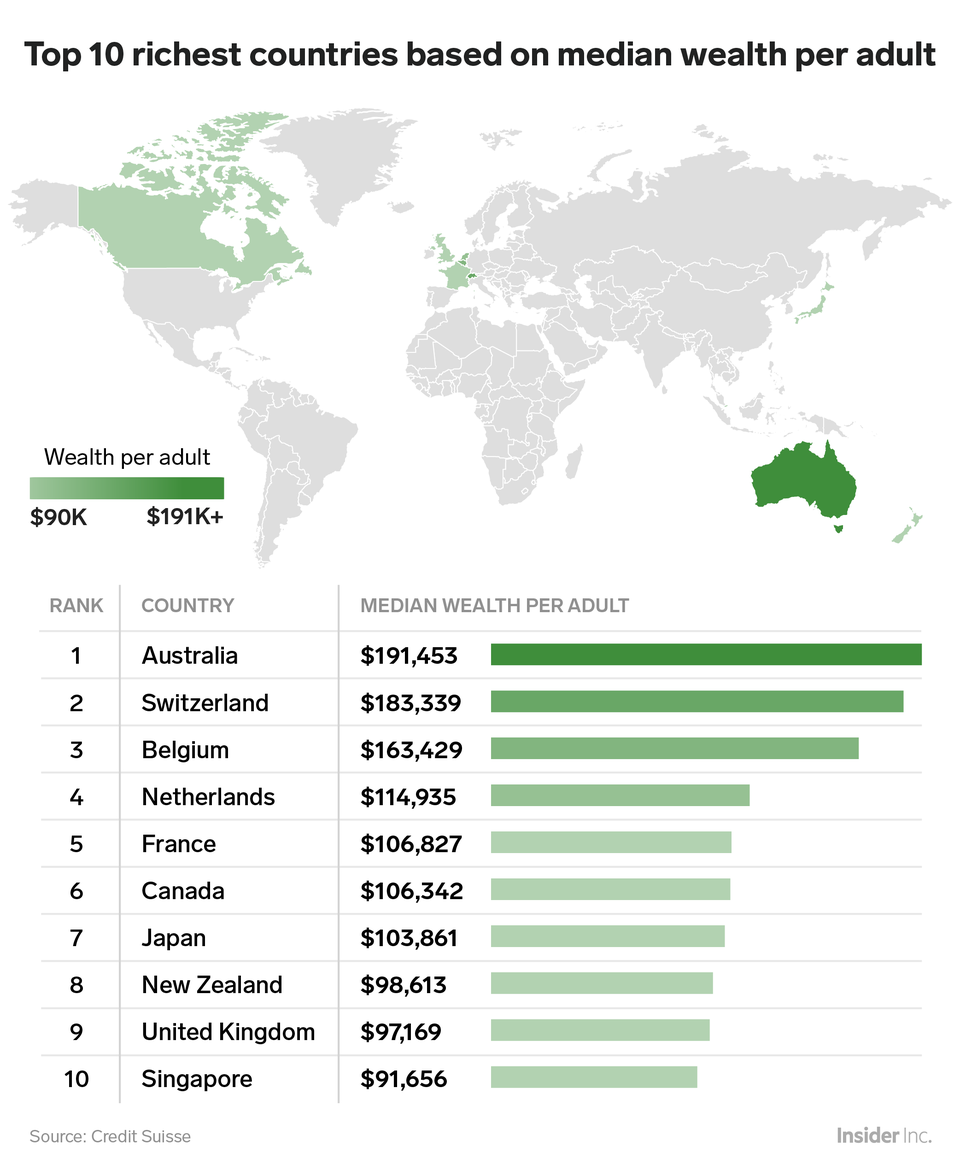Above Photo: The UN says San Francisco’s homelessness problem is a human rights violation. Beck Diefenbach/Reuters
- The US is the third richest country in the world according to Credit Suisse’s 2018 Global Wealth Report.
- But when you take into account how much wealth the average American household has on hand, the US doesn’t even make the top 10.
- The report showcases how bad wealth disparity in the US has become.
The United States is home to more millionaires than any other country in the world. But whether the country is truly the wealthiest in the world depends on how you measure.
A report released by Credit Suisse in October says the US is “in the lead” when it comes to global wealth. But a closer look at the numbers in that report reveals a different story.
While it’s true that wealth in the US is growing faster than anywhere else in the world, it’s not the richest when you compare the average amount of wealth per adult.
That prize goes to Switzerland, as you can see in the map below.

Wait a minute, you may be thinking: it looks like the US is richer than Canada. So what’s with the headline?
The ranking above divides a country’s overall wealth by the total population. That means it doesn’t reflect the fact that the top 0.1% of US households hold as much wealth as the bottom 90%.
“The United States has the most members of the top 1% global wealth group, and currently accounts for 41% of the world’s millionaires,” the report notes. “Our research indicates that the United States added 878,000 new millionaires [since 2017] — representing around 40% of the global increase.”
A different, perhaps fairer, way to rank the richest countries in the world is to take a look at the countries where the greatest number of people are rich.
Credit Suisse ran those numbers, too, in order to compare how much wealth the median, middle-of-the-pack person has in every country.
In that ranking, Australians are the richest. And the US doesn’t even make the top 10.

The US has a median wealth of $61,667 per adult, which puts the country at number 18, well behind others, including Ireland ($72,473), Taiwan ($78,177), and Korea ($65,463). Canada, on the other hand, comes in at number six, with an average wealth of $106,342 per adult.
Economists often point out the simple truth that having wealth makes it easier to get more wealth, which means those who have a lot of money pass on an advantage from one generation to the next.
To adjust for that, economist Darrick Hamilton, a professor at The New School, recently proposed a kind of baby trust fund system. His idea is to give all kids in the US a chunk of cash when they’re born, ranging between $500 and $60,000 based on their family’s wealth. That would help give all American kids a fair shot at a prosperous future, he said.
Read more: An economist has a wild proposal to give all kids in the US up to $60,000 at birth
“Wealth is the paramount indicator of economic security and well-being,” Hamilton told a crowd at the TED Conferences headquarters in New York in September. “It is time to get beyond the false narrative that attributes inequalities to individual personal deficits while largely ignoring the advantages of wealth.”


